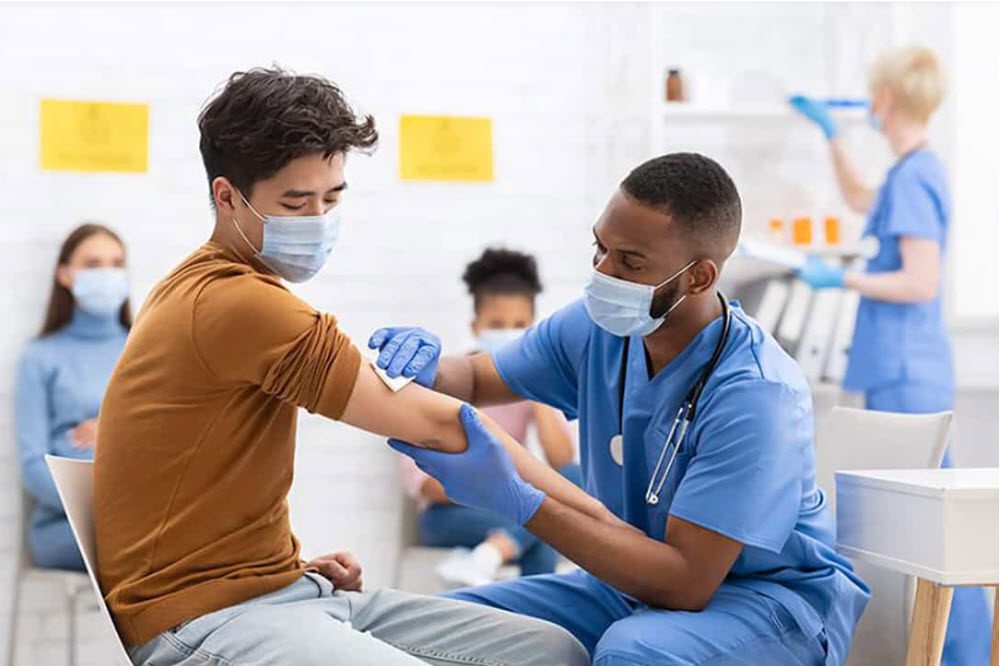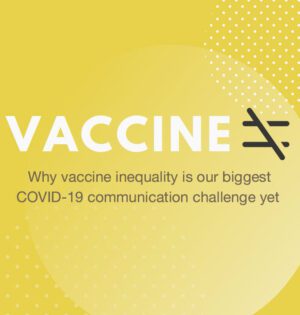Read the paper

The pandemic continues to highlight that while the virus has touched almost every corner of the globe the impact has been far from uniform. As rich countries receive enough doses of vaccines to protect their citizens several times over, countries in the global south must contend with the reality that very few in their population will get close to a needle in 2021.
This report, produced and distributed in March 2021 by the Rooted in Trust project of the Internews Network, explores the inequity of access and the communication challenges that this situation poses. We question how we can split our focus to, on one hand, engage with communities to ensure they understand how vaccine prioritization will be made, to also then manage expectations of access, while still addressing the perception that the pandemic is over when vaccination begins?
The world is on the brink of a catastrophic moral failure – and the price of this failure will be paid with lives and livelihoods in the world’s poorest countries.
Dr. Tedros Adhanom Ghebreyesus, WHO Director General
Special thanks to all the organizations that contributed to this report:
UNICEF, the World Health Organization (WHO), International Federation of Red Cross and Red Crescent societies (IFRC), International Organization for Migration (IOM), the Communicating with Disaster Affected Communities Network (CDAC), Health Gap, The UN Refugee Agency (UNHCR), READY Initiative/Johns Hopkins Center for Communication Programs, Global Common Society International (GCS), BBC Media Action and Anthrologica for lending us their time and expertise to create this report.
